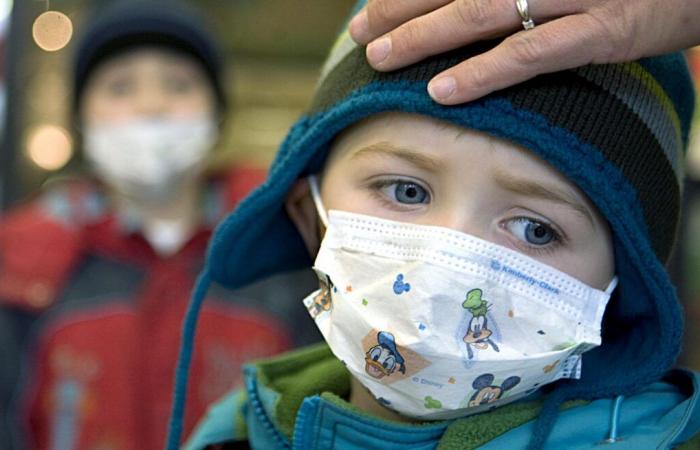
As the respiratory virus season approaches, Montreal pediatric hospitals are seeing a significant jump in cases of atypical pneumonia, an illness often caused by the bacteria, in their emergency rooms. Mycoplasma pneumoniae. Several children had to be hospitalized due to this infection.
This disease follows a cycle that causes the number of cases increases every 3 to 7 years, explains the Dr Jesse Papenburg, pediatrician and microbiologist-infectious disease specialist at the Montreal Children’s Hospital of the McGill University Health Center (MUHC). “What we are experiencing is therefore not unusual, but it has been several years since we have seen so many cases in Quebec,” he emphasizes.
Most of those affected are school-aged children and adolescents, specifies the Dr Papenburg. “But it can affect people of any age. »
Atypical pneumonia usually begins with a cough sometimes accompanied by fever. The infected person may then cough for a few weeks, in addition to feeling very tired, explains the doctor. More rarely, atypical pneumonia can cause respiratory distress, skin rashes, very severe conjunctivitis, mouth ulcers or even brain damage. “It’s uncommon, but there are so many cases of the disease at the moment that we also see unusual manifestations. »
This year, more children suffering from this disease had to be hospitalized to receive oxygen, notes the Dre Caroline Quach-Thanh, pediatrician-microbiologist-infectious disease specialist at the Sainte-Justine University Hospital Center. “These are field observations”, nuance the Dre Quach-Thanh. Its establishment does not monitor the evolution of cases of atypical pneumonia on a weekly basis.
In Quebec, infection with the bacteria Mycoplasma pneumoniae, which is often responsible for cases of atypical pneumonia, is not a notifiable disease. Thus, the Ministry of Health and Social Services explains in writing that it is not “systematically informed of all cases associated with this pathogen”.
However, this does not mean that no monitoring is carried out, specifies the ministry. “Indeed, in the event that there is an outbreak or a particular situation representing a threat to the population, these should be reported to public health authorities. »
More detections
In addition to Montreal, several regions of Quebec are seeing an increase in cases of atypical pneumonia, notes the Dre Caroline Quach-Thanh. “It’s a big year. »
It should also be noted that more detections of the disease were made in 2024 than before, points out the pediatrician-microbiologist-infectious disease specialist. Many children who suffered from cough have undergone screening tests, in the context where whooping cough cases have reached a historic peak this year in Quebec. “Sometimes they were found to have whooping cough and other times they had a cough infection. Mycoplasma pneumoniae “, she explains.
The two diseases can look similar when the person has just contracted them, says the Dr Jesse Papenburg. However, unlike atypical pneumonia, whooping cough causes numerous coughing fits which often occur during the night, he specifies.
Currently, there is no vaccine to prevent infection with the bacteria Mycoplasma pneumoniae. Taking antibiotics can, however, reduce the symptoms of atypical pneumonia, adds Dr.r Papenburg. The doctor, however, wants to be reassuring in relation to the increase in cases of this disease. “It’s important that there is awareness, but I wouldn’t say that I’m worried about the population. This is not a public health crisis. »
As respiratory virus season approaches, the Dr Jesse Papenburg nevertheless invites Quebecers to be vigilant with regard to the various infections that can be transmitted from one person to another.
Influenza vaccination is now offered free of charge to anyone who wishes it, he recalls. “It is particularly important for children under 5 to protect themselves from it, because they are more at risk of developing severe complications linked to the flu. And especially toddlers under 2 years old,” he adds.





